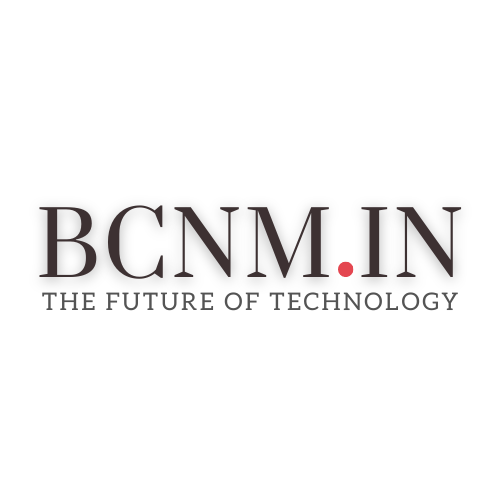Blockchain is soon surpassing all other technologies. Although various peer-to-peer apps for file sharing, music streaming, and other purposes have existed for a while, the concept that these networks can supply their own security and resources has only been around since 2008. Since its inception a decade ago, the performance of bitcoin, the technology that gave rise to the blockchain, has been mostly correlated towards becoming center for digital democracy
Many people are discovering that the main benefit of blockchain is its capacity to enhance legacy systems. Since bitcoin promised a more secure and transparent banking and payment processing solution than those currently available, enterprising onlookers recognized the technology’s potential from the start. The same individuals have utilized blockchain in recent years to transform a wide range of industries, including cloud storage, smart contracts, crowdfunding, and even healthcare. Voter fraud is one of the largest issues that blockchain’s decentralized power can address, though.
Digital Democracy with Blockchain
Blockchain technology uses a digital ledger at the heart of any system. The system uses the peers, or nodes, on its network as a source of power to verify, process, and record each transaction. This ledger is never saved; instead, it resides on a “chain” that is supported at once by millions of nodes. Blockchain’s database of transactions is incorruptible and each record is simple to verify because of encryption and decentralization. Since the network doesn’t exist in a single location, it cannot be destroyed or influenced by a single entity.

The online voting mechanism is revolutionized by blockchain. The security of a blockchain-based voting application’s Internet connection is unimportant because any hacker who gains access to the terminal will be unable to influence other nodes. Voters can cast their ballots effectively without disclosing their identities or political affiliations to the general public. Because each ID can be linked to one vote, no fakes can be made, and tampering is impossible, officials may count votes with complete confidence.
Voter Fraud Fears
The idea that nefarious actors may fundamentally change the outcome of an election and that their activities could potentially go unnoticed, so creating an unknown amount of danger, has been used to postpone the widespread implementation of online voting in the United States. Recent pilot projects have provided several workable ideas for combining voter-certified receipts with citizen-led audits to greatly lower this risk. Depending on the laws and procedures of the country, even if malicious conduct is discovered, the process to remedy outcomes, if necessary, might be challenging. Therefore, a wider political consensus than anything else is needed to trust any voting platform, let alone doubt the authenticity of Blockchain Technology.
Key Success Factors for an Online Voting System
The following key factors play a major role in securing the success of any Online Voting System:
- Anonymity of Voter
- Auditability and Accuracy
- Democracy with Singularity
- Vote Privacy & Security
- Robustness and Integrity
- Transparency and Fairness
- Availability and Mobility
- Verifiable Participation/Authenticity
- Accessibility and Reassurance
- Recoverability and Identification
- Voters Verifiability
Blockchain Architecture of an Online Voting System
Votes are typically recorded or counted using electronic booths/devices while employing the online voting technique. A voting system supported by certain electronic machines and software is typically referred to as an electronic voting system. Such regularities ought to be capable of supporting and carrying out a variety of tasks, from voting setup through vote storage. Examples of system types include voting kiosks, PCs, and more recently, mobile devices. The electronic voting systems must include voter registration, authentication, voting, and tallying.

Image Courtesy & Copyrights By: Check Link
Blockchain Companies Offering Online Voting Systems
The following three companies have been majorly focusing on building Online Voting Systems by utilizing Blockchain Technology.

Horizon State
Horizon State is US based company that provides a secure, anonymous, convenient, and affordable electronic voting platform. It is a business that offers a safe online voting system built on the blockchain with the ability to audit polling places and track real-time democratic developments. With the help of this platform, voters can securely and remotely cast their ballots for the candidate of their choice. It can then use their identification to physically open the ballot box, locate their ballot, and verify that it is accurate as well as the mathematical accuracy of the election results.
Voatz
Voatz has developed a blockchain-based voting system for smartphones that allows voters to cast distant, anonymous ballots and check that their votes were accurately counted. Voters certify the accuracy of the information provided by the applicants and themselves on the application, and they provide proof of their identity by a picture and biometric attestation, such as a fingerprint or retinal scan that has a distinctive signature.
Polyas
Founded In 1996 in Finland, Polyas uses blockchain technology to offer an electronic voting system to the public and private sectors. The German Federal Office for Information Security has certified Polyas as sufficiently secure for 2016 electronic voting applications. In Germany, many important corporations utilize Polyas to manage their electronic voting systems. Customers of Polyas may now be found in both Europe and the United States.
Conclusion
Too frequently, gridlock, poor voter turnout, and growing polarisation keep the American Democracy from living up to citizens’ aspirations. Something is obviously wrong with American Politics. It is more difficult to understand why or how to proceed. Events such as January 6 divide the country more and erode the trust factor in fair election and voting practices. At such a critical juncture, the applicability of a secure and safer voting system powered by decentralized blockchain technology seems to be the only light at the end of the tunnel.






Excellent perspectives Ajit Sir. I believe blockchains will create a big impact for elections in all countries. Thanks for keeping my request and writing on this topic.